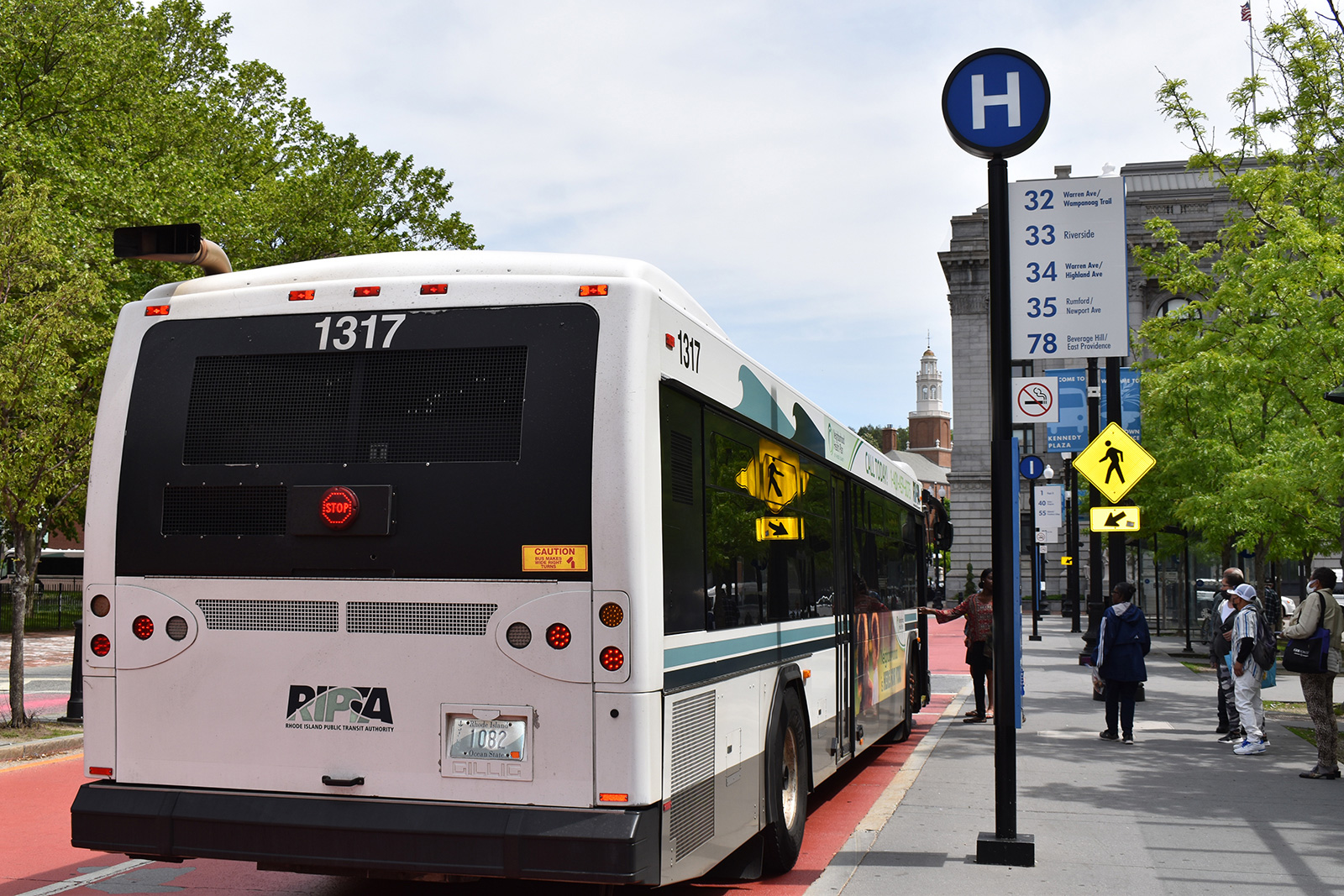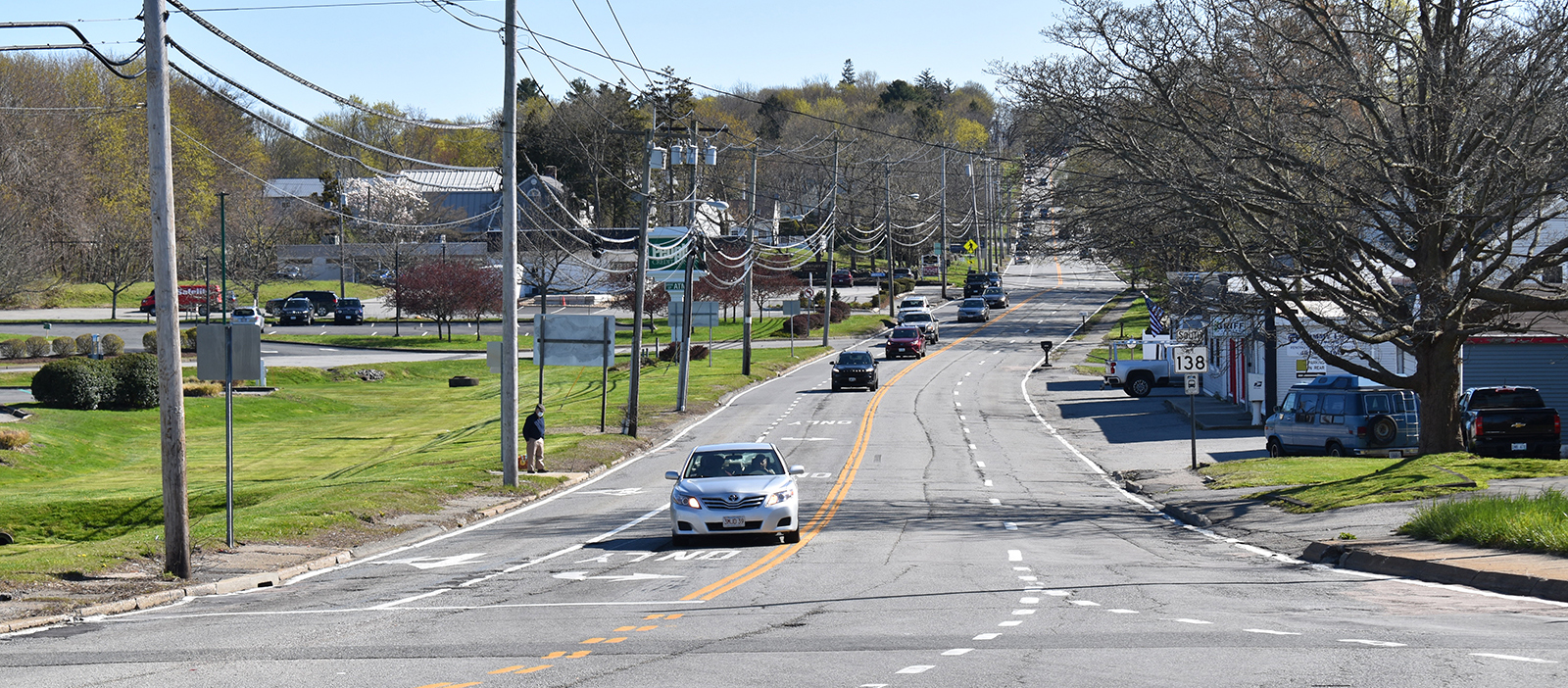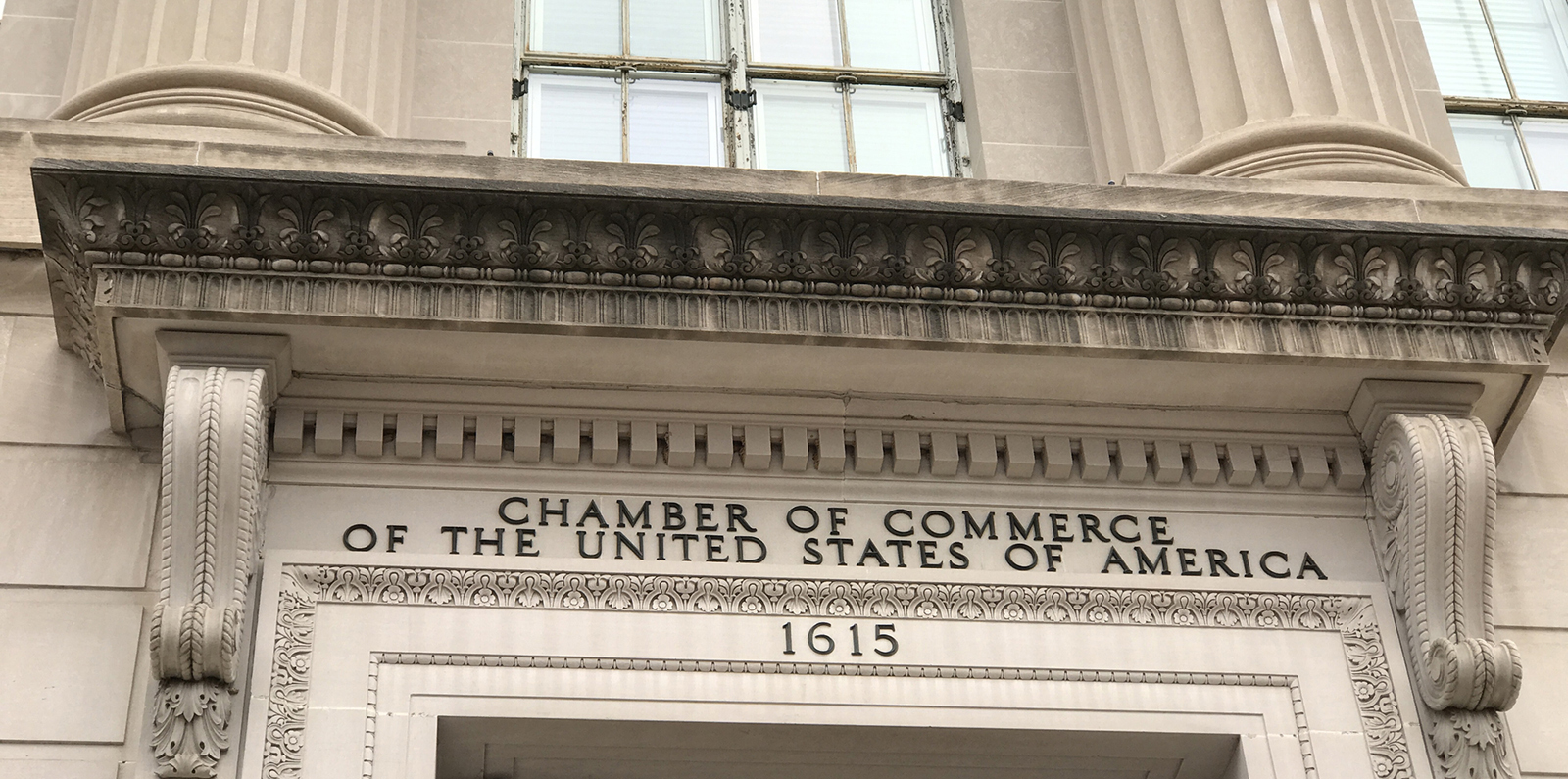Public Transit in Rhode Island Deliberately Being Driven Off Cliff
Two decades of ignoring RIPTA’s needs, bashing its public image have left a mark
November 9, 2023
Far too many of the power brokers who have perched atop Smith Hill over the past 20 years have gone out of their way to slash the tires of public transit. While that act of vandalism may be figurative, lawmakers have literally left the Rhode Island Public Transit Authority running on fumes.
Years of Statehouse neglect have left public transit in Rhode Island struggling to survive at a time when a robust, well-supported system would go a long way in reducing transportation sector emissions — the state’s leading producer of climate-changing pollution.
A recent power move — orchestrated by a Senate president who likes to talk a good game about addressing the climate crisis but then does little that matters — to make Rhode Island Department of Transportation director Peter Alviti Jr. chair of the RIPTA board of directors wasn’t done to improve or expand service. It was done, according to many local transit advocates, to perpetuate the state’s decades-old practice of undermining public confidence in the beleaguered agency.
Recent history provides a roadmap.
Rhode Island’s enduring lack of leadership and kowtowing to the wealthy status quo will prove costly, even to the rich and powerful who expect their special interests to be shielded no matter the costs. It’s already punishing the less fortunate and the voiceless.
Public transit is a solution to the climate and equity crises that have enveloped us, but it’s not a topic discussed, at least not in a constructive manner, at fancy parties, estate gatherings, and backroom meetings. This indifference has left bus service in Rhode Island being powered by federal money distributed to deal with the pandemic tragedy that killed more than a million people in the United States. That funding is set to run dry by 2025; local lawmakers and the bureaucracy they enable reacts by elevating a transportation dinosaur into another position of power.
Let’s be clear, if RIPTA is driven off this fiscal cliff, the agency and those who rely on it will experience devastating service cuts and both they and the state’s economy will suffer. An even further crippled RIPTA will also make it much more difficult for Rhode Island to meet the emission mandates outlined in the 2021 Act on Climate law.
Also, let’s not forget public transit supports economic development, community revitalization, equitable access to opportunity, and climate mitigation. It’s what local lawmakers like to call a “win-win.”
But instead of embracing the many opportunities offered by public transit, which include bicycle and pedestrian infrastructure, Senate President Dominick Ruggerio raises the transportation profile of Alviti, a man who wanted to push RIPTA riders out of Kennedy Plaza and onto Allens Avenue — the most sickly and dangerous transportation corridor in the state.
The power struggle for control of RIPTA is misguided at best and is based on a false narrative that agency management is to blame for the fiscal cliff that looms, according to Grow Smart Rhode Island.
After years of Smith Hill minions taking a sledgehammer to RIPTA’s image, there’s little wonder the agency is clunking along on bare rims. The public transit situation isn’t unlike what has been done to the public education system here and across the country.
John Flaherty, Grow Smart’s deputy director and a Rhode Island Transit Riders member, circles Feb. 17 as the date when the hostile takeover of public transit advanced to another level.
On that cloudy and drizzly Friday, Ruggerio made a surprise announcement calling for the resignation of RIPTA’s chief executive officer and for RIDOT to take over RIPTA. Former Gov. Gina Raimondo tried the same power play three years earlier, but her plan didn’t include manipulating her RIDOT director nominee into becoming the RIPTA board chair.
Grow Smart countered Raimondo’s proposal by recommending the opposite approach: reassigning all transit operating functions that reside at RIDOT to RIPTA.
Since the Feb. 17 coup attempt, Flaherty, a longtime transit advocate and frequent bus rider, said he has read or heard statements “by key officials that seem contradictory or inconsistent with the facts regarding RIPTA.”
“In my view it has appeared to be a managed effort by some to undermine the image and perception of the transit agency as being mismanaged and not deserving of further investments to improve transit until the agency’s house is in order,” he wrote in a recent email to ecoRI News. “And as I’ve said, this seems to be a pattern that has been repeated when it comes to RIPTA funding for at least two decades. The pattern, in my opinion, has kept RIPTA’s state funding at the bare minimum which has compounded its challenges.”
It’s no secret that RIPTA has been chronically underfunded for years. Most of RIPTA’s funding is covered by state and federal subsidies, including money from the state’s gas tax. Rhode Island taxes gasoline and diesel at 34 cents a gallon. Transit fares account for little of the agency’s revenue.
Few real solutions come out of the Statehouse to better fund RIPTA and improve public transit. In fact, it’s usually the opposite.
For instance, in 2022, when gas prices were on the rise, the General Assembly’s shortsighted members began calling for the suspension of the gas tax. Their non-solution cries only illustrated why Rhode Island fails to adequately fund public transit. (Many of the same politicians in favor of suspending the gas tax have also spent time attempting to eliminate the state’s motor vehicle excise tax.)
Besides the Statehouse’s lack of bold visionaries in leadership positions, the main reasons RIPTA lacks funding and legislative support is largely tied to two other reasons: few on Smith Hill actually ride the bus and many of those who don’t hold contempt for those who do, which explains why Alviti and his political ilk have tried to hide Kennedy Plaza on Allens Avenue and in other Providence crevices.
As Flaherty noted, those who ride RIPTA — low-income residents and people of color — aren’t a political priority for those on Smith Hill.
While funding RIPTA isn’t a Statehouse priority, scrutinizing its operations is.
Since the turn of the century, according to Flaherty, there have been several fiscal reviews and performance audits commissioned by governors and the General Assembly. He said the conclusions of these reviews have largely been the same: RIPTA is generally well run and outperforms its peers in almost every key performance indicator.
Two decades of audits and financial reviews fit into the ongoing power play to sabotage the public’s confidence in the South Side-based agency.
Soon after taking over as chair this summer, Alviti recommended that the RIPTA board establish a committee to oversee and review the agency’s financial transactions and other internal operations. (The board declined.)

Flaherty provided ecoRI News with links to recent stories that he said illustrate the efforts to undermine RIPTA. He also provided money quotes from the stories and his own commentary.
“It’s all about slowing down and reducing investment in RIPTA,” he said. “Doing the bare minimum to keep the buses running.”
Senate president calls for RIPTA chief to go, agency to merge with RIDOT (Feb. 17). Ruggerio laid the fiscal crisis at CEO Scott Avedisian’s feet, saying “there has been no change in direction …. no meaningful plan to confront the agency’s fiscal challenges has been presented to the General Assembly, and we are again faced with putting band aids on a gaping wound.”
RIPTA board of directors split on question of whether bus agency is being run properly (April 13). “The board’s lack of proactive action over the years has led to this fiscal cliff we are facing.” — Patrick Crowley, board member
It is well documented that transit agencies across the nation are challenged by a fiscal cliff following the phaseout of federal COVID relief funding. Alviti has served on the RIPTA board since 2015. Why is it that he has never raised concerns about the agency’s management until this year? (It was even reported that he missed half the RIPTA board meetings since 2021.)
Ruggerio backs off RIPTA-RIDOT merger, for now (May 25). “The Senate president continues to believe that RIDOT should oversee all transportation matters in our state, including public transit,” according to an email from his office. “While he continues to work towards that ultimate goal, naming the RIDOT director as chairman of the board of RIPTA is an acceptable first step for the time being.”
R.I. transportation chief sees ‘correction’ ahead for RIPTA (July 21). One problem, Alviti said, is that RIPTA’s board of directors has ceded control to the agency’s administration. “And how’s that worked out?” he said. “We’ve got an agency that’s providing ridership to 3 percent of Rhode Island, in the second most densely populated state in the country. When the other densely populated states have a ridership of 15 to 20 percent.”
Here are the actual percentages of transit ridership in the most densely populated states, according to Census data from 2019, the year prior to pandemic disruptions: National average, 5%; Rhode Island, 3.1%; Connecticut, 4.5%; Massachusetts, 10.4%; Delaware, 2.4%; Pennsylvania, 5.7%; New Jersey, 11.6%; and Maryland, 8%. (New Jersey and Rhode Island are the two most densely populated states.)
It’s also worth noting that commuting accounts for about 30% of total ridership, according RIPTA data.
A split over Alviti’s actions at RIPTA (Aug. 18). In Alviti’s first meeting as chair, he criticized RIPTA for what he described as a lack of accountability and direction. He highlighted low ridership rates, and criticized the agency for seeking more funding without a plan to reform the system. “I think what builds the taxpayers’ confidence … is first, the agency operating in a proper manner that breeds confidence. It needs to provide a successful product for the public,” Alviti said.
Despite the chair’s criticisms, his views have not been determined by a review of the facts. Quite to the contrary. RIPTA has undergone scrutiny several times since 2002 in response to its chronic funding challenges. The General Assembly itself conducted a deep analysis of RIPTA’s performance by way of this Special Legislative Commission to Study Transit Service in the State of Rhode Island in 2007. Then, there was this Senate Commission on Sustainable Transportation Funding in 2011 that resulted in some additional funding for transit, but only enough to close the deficit gap, not enough to support service improvements.
RIPTA board meeting discussing the proposal to create a performance review committee (Oct. 10). Alviti, referring to the funding needed to implement the Transit Master Plan, seems to be off by $2 billion. “How do we get from having absolutely no funding for it to have $5 billion strategically allocated for it?” (2:52).
The estimated cost outlined in this May 17 presentation to the board totals about $3 billion in new investments over the period of fiscal 2025 through fiscal 2040. Alviti was absent at that meeting. The estimated cost is also outlined in the Transit Master Plan, on page 53.
“During the last year and a half that its been in existence, I haven’t heard any ideas or suggestions that would close that gap, that $5 billion gap to make this TMP a reality,” Alviti said, “… so this [review committee] is an opportunity to have more information on what kind of funding opportunities may be there.” (3:11).
Alviti fails to acknowledge the 74-page Potential Funding Approaches study that RIPTA completed and published a month after the Transit Master Plan was adopted by the State Planning Council in January 2021.
RIPTA board votes down Alviti’s call for new subcommittee in split vote (Oct. 11). “Everything is not OK. They’re OK in our eyes, maybe, but they’re not OK in the eyes of the public, in the Legislature, in the congressional delegation, or the people of the state of Rhode Island.” — Alviti
Rhode Island’s congressional delegation has been instrumental in securing numerous federal grants to advance some of the capital improvements in the Transit Master Plan.
As RIPTA rides toward a fiscal cliff, tensions flare between Alviti, board members (Oct. 12). “We are where we are precisely because we’ve become myopic and self-serving.” — Alviti
Alviti argues that the decision by General Assembly leaders and Gov. Dan McKee not to provide the funding Avedisian says RIPTA needs is itself proof the transit operator is being run badly. Yet, in April, it was reported that McKee maintains confidence in Avedisian’s ability to manage RIPTA’s challenges.
Note: On the same day that Ruggerio was calling for Avedisian’s resignation and for RIDOT to take over RIPTA, Speaker of the House Joseph Shekarchi was attending Grow Smart’s Transit-Oriented Development Forum and said Avedisian was doing a “good job.”
Frank Carini can be reached at [email protected]. His opinions don’t reflect those of ecoRI News. For a related opinion about transportation emissions and public transit in Rhode Island, click here.




Alviti, Ruggerio, and McKee are all acting like criminals. Stealing form the public in ways that kill.
As a long time employee at RIPTA and a former Business Agent (ATU-618) I led the fight against RIDOT takeover and your article never mentioned it.
I met with Governor Riamondo on her office and laid out for her the difficulties involved with a RIDOT takeover.
1. RIPTA employees are quasi and not in the state employees pension plan.
2. ATU and LIUNA 808 members are covered under Federal Labor Protections negotiated by Congress and the ATU back in 1964 – RIDOT and RIPTA are co-signers to this agreement 13c.
3. Federal Transit Funds are reviewed in Washington by the DOL and the ATU to ensure unionized members collective bargaining rights are protected.
4. As you have rightly pointed out there is a future funding request plan. Raising necessary funds through sales, income, user fees and tolling.
Finally, RIPTA has not promoted from within for positions that require transit knowledge and operational expertise.
The current level of service needs to be re-worked with an emphasis on creating links to hubs with trips that connect.
Fares reinstate transfers – the WAVE cards are not reliable ( RIPTA spent FTA funds to install card readers instead of purchasing up to date fare boxes)
Kennedy Plaza – Clean it up! Fix broken shelters and bus stops. Open Customer Service Window and keep public restrooms open and clean – Police security is necessary and riders welcome it as do employees.
I once was at a contract negotiation when the GM stated to the bargaining committee “The union’s proposals are to Rich’ with a follow up “If the Governor only gives me ten cents then that’s all the bus service I put out and what’s left the union gets.
Not much has changed in 44 years.
Thomas Cute